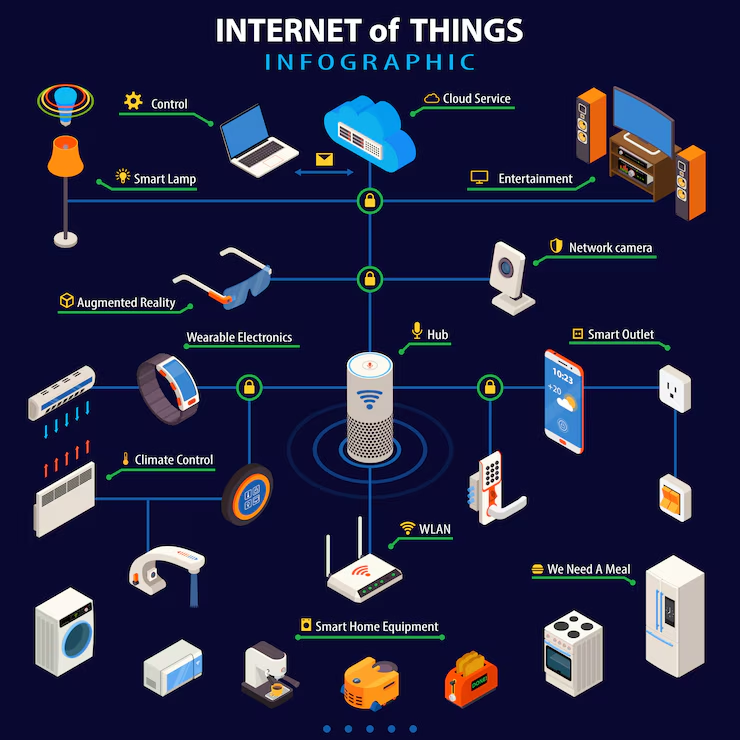In today’s digital era, decentralized networks are reshaping the way we connect, share, and secure data. One standout innovation in this field is the IP2 Network. But what exactly is the IP2 Network? How does it work, and why should you care about it? This article will provide a clear explanation of the IP2 Network, breaking down its key functions, technology, and real-world importance.
What is the IP2 Network?
The IP2 Network is a decentralized peer-to-peer network designed to enhance internet connectivity, security, and user privacy. Unlike traditional centralized networks, where data passes through specific servers controlled by companies, the IP2 Network distributes data across numerous independent nodes worldwide. This distribution prevents single points of failure, making the network more reliable and resilient.
In simple terms, the IP2 Network connects users directly with each other without relying heavily on centralized servers. This approach reduces the risk of censorship, data breaches, and service outages. Moreover, it promotes a more open and secure internet environment.
How Does the IP2 Network Work?
To understand the workings of the IP2 Network, it helps to first know the basics of decentralized networking. Here’s a step-by-step explanation:
1. Peer-to-Peer Architecture
At its core, the IP2 Network is a peer-to-peer (P2P) system. This means that each participant, or node, in the network communicates directly with other nodes. Instead of routing all traffic through a central server, data is shared and transferred between nodes. This reduces bottlenecks and improves network speed.
2. Node Participation
Anyone can become a node on the IP2 Network by running software that connects their device to the network. Nodes help route traffic, store data temporarily, and maintain the overall health of the system. Because nodes are spread across the globe, the network can function even if several nodes go offline.
3. Data Distribution
When data travels across the IP2 Network, it splits into smaller pieces. These pieces are sent through different nodes and then reassembled at the destination. This method, called data sharding or fragmentation, increases security. Even if someone intercepts one piece, it is meaningless without the others.
4. Security and Privacy
The IP2 Network uses encryption to protect data as it moves across nodes. This means that only the intended recipient can decrypt and access the information. Additionally, since there is no central data storage, users maintain more control over their privacy.
5. Consensus Mechanism
To ensure network integrity, IP2 Network may use a consensus algorithm that verifies transactions or data exchanges between nodes. This process helps prevent fraud and ensures the network’s reliability.
Key Features of IP2 Network
Understanding the features of the IP2 Network will clarify why it stands out in the world of decentralized technologies.
Decentralization
The IP2 Network’s decentralized design reduces dependence on centralized servers. This structure minimizes risks related to censorship, control, and downtime.
Enhanced Security
By splitting data into fragments and encrypting each part, the network offers strong protection against hacking and data theft. Users’ data remains confidential throughout the transfer process.
Increased Speed
Thanks to multiple routes for data transfer and distributed node participation, the IP2 Network can deliver faster speeds than traditional networks, especially during heavy traffic.
Scalability
As more nodes join, the IP2 Network grows stronger. Its peer-to-peer design allows easy scaling without the need for costly infrastructure upgrades.
Cost Efficiency
Running the network on decentralized nodes lowers operational costs. This efficiency can translate into cheaper or free access for users.
Why Does the IP2 Network Matter?
You might wonder, “Why should I care about the IP2 Network?” The answer lies in the benefits it brings to internet users, businesses, and the global digital ecosystem.
1. Improving Internet Privacy
Privacy has become a major concern for internet users worldwide. Centralized servers often collect user data, sometimes without consent. The IP2 Network’s decentralized design limits data collection, giving users more control over their personal information.
Moreover, encryption ensures that no one can intercept and misuse data during transmission. This protection is vital in an age of increasing cyber threats.
2. Reducing Censorship and Control
Governments and corporations can censor or block content by controlling centralized servers. The IP2 Network’s peer-to-peer structure makes such censorship much harder. Since data travels through multiple nodes globally, no single entity can easily restrict access to information.
This feature promotes free speech, open communication, and access to diverse viewpoints.
3. Boosting Network Resilience
Traditional networks suffer from outages when central servers fail. In contrast, the IP2 Network remains operational even if many nodes disconnect. This resilience ensures uninterrupted service, which is critical for businesses and emergency communications.
4. Supporting New Technologies
The IP2 Network serves as a foundation for various emerging technologies, such as blockchain, IoT (Internet of Things), and decentralized applications (dApps). By providing secure and fast connections, it accelerates innovation in these fields.
5. Empowering Users and Communities
By allowing anyone to become a node, the IP2 Network democratizes internet infrastructure. Users can contribute to the network’s growth and earn rewards, fostering community engagement and shared ownership.
Use Cases of the IP2 Network
To see the real impact of the IP2 Network, let’s explore some practical applications:
Decentralized File Sharing
The IP2 Network enables safe and fast file sharing without relying on a central server. Users can share documents, videos, or software securely and privately.
Secure Messaging
Messaging apps built on the IP2 Network benefit from enhanced privacy and resistance to censorship. This makes it ideal for activists, journalists, or anyone seeking confidential communication.
Content Delivery Networks (CDNs)
The IP2 Network can act as a decentralized CDN, delivering web content faster by distributing it across nodes near users.
IoT Connectivity
IoT devices require efficient, secure communication. The IP2 Network supports decentralized device networks, improving reliability and data protection.
Challenges and Future Outlook
While the IP2 Network offers many advantages, it also faces some challenges:
-
Adoption: More users and developers need to join for the network to reach full potential.
-
Regulation: Some governments may resist decentralized networks due to control concerns.
-
Technical Hurdles: Ensuring consistent performance across diverse nodes remains complex.
However, ongoing development and growing interest in decentralization suggest a bright future. The IP2 Network is poised to become a vital part of the internet’s next generation.
How to Get Started with the IP2 Network
If you’re curious about experiencing the IP2 Network, here’s a quick guide:
-
Download the Software: Visit the official IP2 Network website to get the node software or compatible apps.
-
Set Up a Node: Follow instructions to connect your device as a node or join as a user.
-
Explore Applications: Try decentralized apps or services running on the IP2 Network.
-
Stay Updated: Join community forums and follow development updates to make the most of the network.
Conclusion
The IP2 Network represents a significant shift toward a more secure, private, and resilient internet. By leveraging decentralization, peer-to-peer connectivity, and encryption, it addresses many limitations of traditional networks. Whether you care about online privacy, freedom of information, or future technology, the IP2 Network offers exciting possibilities.



